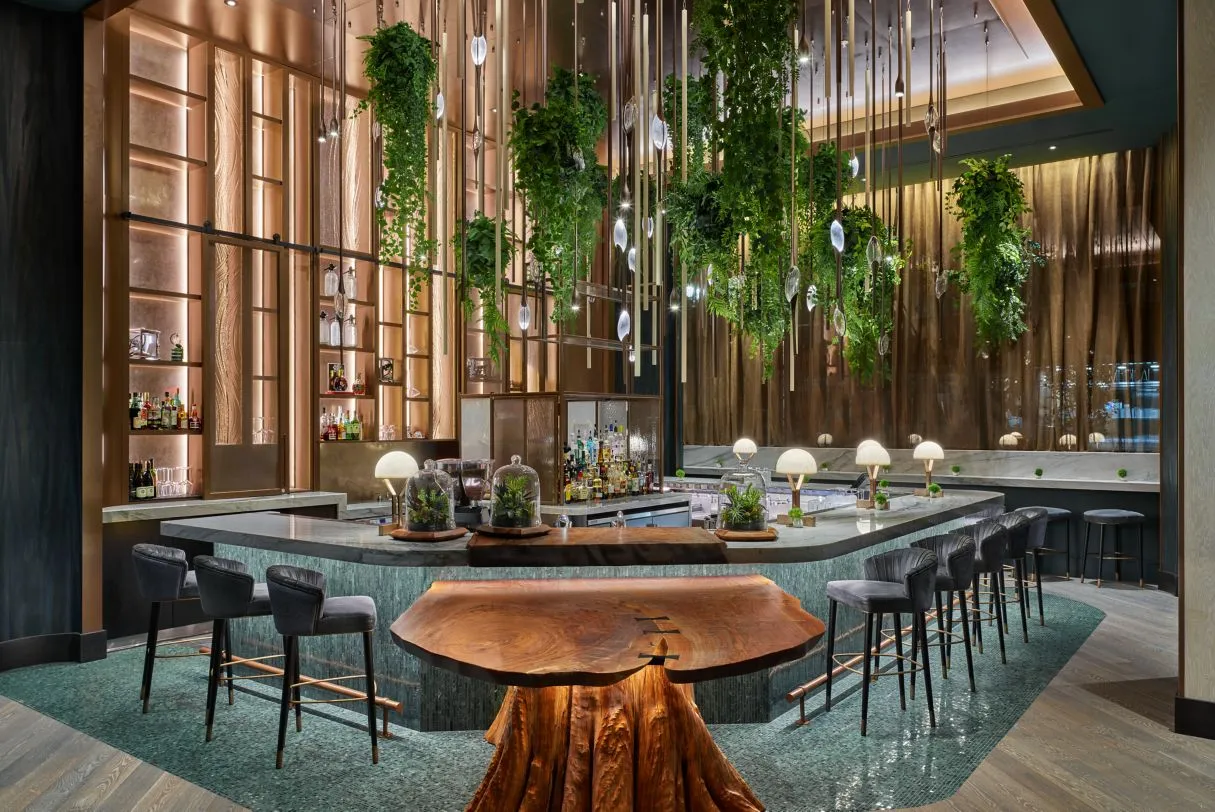
Food and beverage trends that will shape the hotel industry in 2024
The luxury and lifestyle segment saw significant growth in 2023, driven by a healthy appetite for travel — and a willingness to spend on it. But what leisure travelers want out of their trips has changed.
Increasingly, travelers are seeking experience-based trips, focusing more on the destination and its surrounding activities. Consumers are also increasingly prioritizing sustainable hotels and travel options.
As these travel trends accelerate in 2024, hotels will adapt their food and beverage offerings to cater to changing guest demand and behavior, according to chef Stephen Toevs, Marriott International’s senior director of culinary for the U.S. and Canada. He shared with Hotel Dive the top culinary trends that will shape the future of the hospitality industry in 2024 and beyond.
Less choice is more
In 2024, chefs will be asking themselves: “How can I make the dining experience memorable for the guests?” Offering a smaller, tailored menu is one way to do that, Toevs said.
This year, hotel restaurants will move to smaller a la carte offerings and even simplified prix fixe menus that emphasize local ingredients while minimizing costs, he said. This will encourage chefs to innovate their menus with seasonal ingredients and products already on hand.
Consumers make endless decisions daily in regard to their work, home and family life, Toevs explained, so when it comes to eating at a restaurant, they want the process to be as seamless as possible.
“Done are the days that we have these large, ‘Cheesecake Factory’ menus.”

Chef Stephen Toevs
Senior director of culinary for the U.S. and Canada, Marriott International
Also, for the chef, it’s easier to tell a story with a smaller menu, Toevs said. This, in turn, creates a unique experience for guests, something more and more luxury travelers are demanding.
With a “less choice is more” mentality, chefs can streamline their menus and focus on ingredient execution and authenticity to create a holistic experience for the consumer.
“What we want is guests to dine in a restaurant that is concepted properly, meaning the music's right, the design is right, the food matches the design and the decor, there's an overall theme that speaks to an experience,” he said. “Done are the days that we have these large, ‘Cheesecake Factory’ menus.”
Local ingredient sourcing
Another way chefs will cater to an increasing appetite for experience-based travel is through local ingredient sourcing. In 2024, Toevs forecasts, hotel restaurants will continue to “carefully curate” seasonal and local produce in their menus as a way to tell stories through dishes.
Say a restaurant sources an heirloom beet from a local family farm. There’s a story that comes with that produce and gives insights into the surrounding destination’s climate or community, Toevs explained, which creates a more immersive experience for the guest.
“We want our servers to storytell about our food and our ingredients,” Toevs said. “The only way to do that is to find those partnerships within the local community that [allow us to] not only support local farmers and suppliers, but also provide those storytelling opportunities within the menus.”
One Marriott restaurant already integrating these practices is Bellpine at the newly opened Ritz-Carlton Portland, Toevs highlighted.
At Bellpine, “the chef has done an awesome job of curating ingredients” to play on the surrounding destination’s forest, mountain and ocean climates, Toevs said. This includes sourcing mushrooms for various dishes, even desserts, and working with local fishermen to procure crab and salmon.
The JW Marriott Phoenix Desert Ridge Resort & Spa has also hopped on this trend, hosting “In the Garden” dinners with seasonal and local produce, Toevs said. He explained that the property has a long chef’s table situated within its on-site gardens, where the culinary team creates bespoke dinners for a few select guests at a time, using in-season ingredients and preparing them in unique ways each time.
Plant-forward proteins
The Ritz-Carlton Portland has also embraced another trend that Toevs sees ramping up across the hospitality industry in 2024: the use of mushrooms and other satiating meat substitutes to cater to a heightened demand for plant-based and sustainable dining options.
“Guests who are eating plant-based or plant-forward are looking for more substantial proteins, so in comes mushrooms, which can have that mouthfeel of a protein and also that umami flavor that's really rich and satisfying.”

Chef Stephen Toevs
Senior director of culinary for the U.S. and Canada, Marriott International
Travelers want more sustainable options at hotels, and that includes within their dining concepts, Toevs said. In 2024, chefs will make mushrooms the focal point of meals in various ways, using them as protein substitutes, a coffee base or a smoothie ingredient.
“Now, we're looking at vegetables at the center of the plate, and then we build our garnishes around it,” Toevs said. “Guests who are eating plant-based or plant-forward are looking for more substantial proteins, so in comes mushrooms, which can have that mouthfeel of a protein and also that umami flavor that's really rich and satisfying.”
By adapting their food and beverage concepts, hotels could potentially boost their performance growth, Toevs said, adding that “there is a direct correlation” between room nights sold and the quality of the food and beverage offerings on-property.
“If we have a really robust F&B program, not only are we going to see guests that want to repeat stay, but we're also going to have local guests who want to do a staycation,” he said.








